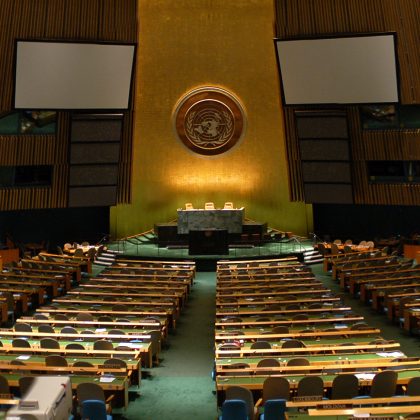Race and Empire: writing the global history of Irish revolution
The global ripples of the Black Lives Matter movement resulting from the killing of George Floyd in Minneapolis on 25 May 2020 were felt in Ireland where attention focused on memorials to advocates of slavery [1], as well as other individuals associated with reprehensible causes.
Should the statue to John Mitchel – a supporter of slavery in the American South – fall in Newry? Should Dublin’s Westmoreland Street – named after John Fane who resisted the prohibition of slavery – be renamed? In Dublin’s Fairview Park, the statue of I.R.A. leader Seán Russell, who sought Nazi support in wartime Berlin, also came under renewed scrutiny when it was singled out by former Taoiseach Leo Varadkar.
A prominent theme of these debates concerned the extent of Irish complicity given the country’s subordinate relationship to Britain. In a much-criticised intervention [2], one Irish historian argued that far ‘from being culpable in the trans-Atlantic slave trade, Ireland was itself an object of the same process of colonisation that gave rise to the trade’, its people ‘subject to the same process of subjugation and degradation’ as that inflicted on enslaved Africans. Given the differing legal status, treatment, and legacies experienced by both groups, few historians would concur with this crude equivalence.
But the question of how much weight to attach to colonial dimensions of Irish experiences is far from straightforward. Irish republicans, particularly in the United States, proclaimed their solidarity with Indian and Egyptian revolutionaries in 1920. Yet Éamon de Valera could also ask American audiences why ‘Ireland is now the last white nation that is deprived of its liberty’. Republicans also won support from prominent Black intellectuals [3] despite the tensions between Irish Americans and African Americans which contributed to the 1919 Chicago race riots. On the international stage, the Dáil’s diplomats took care to ensure that what they saw as Ireland’s superior claims to nationhood were not conflated with those of colonised peoples.
Nor was revolutionary Ireland subject to colonial levels of violence. The liberal character of the British state and civic society – rarely extended to non-white parts of the Empire – constrained repression in Ireland, while Irish claims to independence were strengthened by racial assumptions and the support of the ‘White Dominions’. Although described as ‘Ireland’s Amritsar’, there was some distance between the killing of 400 Indians in Jallianwala Bagh in 1919 – a massacre in which Irish colonial officials and military officers were implicated – and the killing of 14 people in Croke Park in 1920. The disputed motives behind the Connaught Rangers’ Indian Mutiny [4], whose centenary has just occurred, defy any neat categorisation of Irish attitudes to empire.
None of this is to downplay issues of responsibility for the violent events in Ireland which are now being commemorated. But it does point to the need to interpret them in the broadest possible contexts, including an imperial framework in which the Irish occupied a higher position than other nationalities partly by virtue of their race.
One way of rethinking issues central to Ireland’s revolution – including gender, violence, race, and political thought – is to analyse their impact beyond Ireland, and to consider in turn how they were shaped by contemporary global developments. This special issue of Irish Historical Studies makes the case for applying transnational, comparative, and global approaches and perspectives in order to fully understand the complexity and diversity of Ireland’s global revolution.
Read the full introduction to the special issue
[1] https://www.irishtimes.com/news/ireland/irish-news/links-to-slave-trade-evident-across-ireland-1.4276650
[2] https://gript.ie/claiming-that-ireland-shares-in-the-disgrace-of-slavery-is-utterly-misleading-says-historian-gabriel-doherty/
[3] https://newrepublic.com/article/132042/irish-rebellion-resonated-harlem
[4] https://www.historyireland.com/podcast/hedge-school-recordings/
Main image credit: Éamon de Valera, circa 1917





